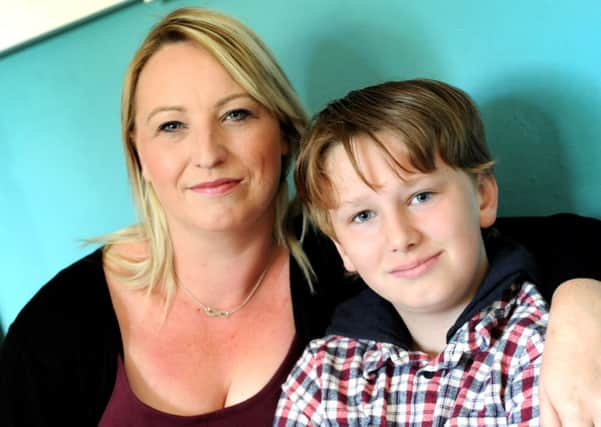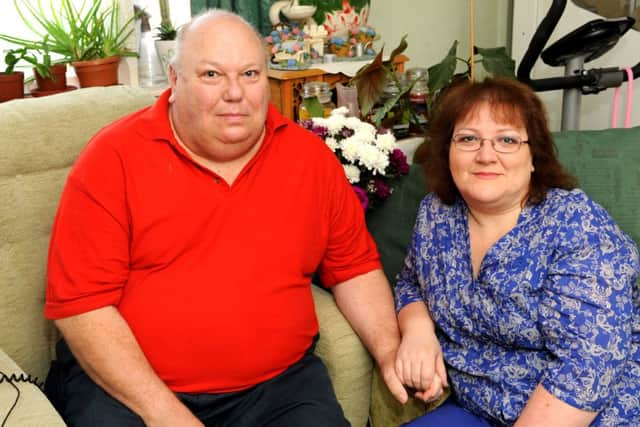Inspiring unpaid carers in Mid Sussex need support from the community


Burgess Hill town mayor Anne Jones said: “Unpaid carers need support in the family and in the community.
“Some people suffer health problems so that they do sometimes die before those they care for do.”
Advertisement
Hide AdAdvertisement
Hide AdA meeting was held last week to on making it easier for people who are suffering with dementia and for carers of those with dementia.


“The county council is focusing on carers’ huge responsibility, looking at issues affecting carers and support organisations.”
Councillor Jones cared for her husband for 25 years.
“Carers don’t want to be called carers, they’re often a mother, a husband or a wife, but it does impact their lives,” the mayor continued.
“Caring affects quality of life, people are not able to socialise or go to events that other people do.
Advertisement
Hide AdAdvertisement
Hide Ad“Carers are left on their own sometimes, then they don’t have career prospects later in life.”
Statistics published in carers week found that teenage girls can expect to provide over nine years unpaid care through their lives for disabled, ill, or older loved ones, and boys just over seven years.
Heléna Herklots, Chief Executive of Carers UK, said: “Our ageing population means that future generations will see caring for loved ones have an even greater impact on their lives.
“Today’s teenagers will face almost a decade of caring throughout their lives. These figures should be a wake-up call, showing that our ageing population means we will all care at some point in our lives.”
Advertisement
Hide AdAdvertisement
Hide AdCalley Bryson’s 12-year-old son Joshua Noble, who has autistic spectrum disorder, was recently permanently excluded from school.
Calley said: “He had an autistic meltdown, which can make him violent.
“He self harms, he tries to punch himself, he bangs his head, throws himself down, scratches his face and gets extremely distressed.
“It’s like a two year old having a temper tantrum in the body of a 12-year-old, it’s extremely difficult as a parent and a carer.”
Advertisement
Hide AdAdvertisement
Hide AdCalley worked full time as a manager in a bakery for six years until six years ago, when her son was diagnosed with autism.
She said: “It’s full time because he’s off school, he’s going through statutory assessment process whilst we try to find him somewhere.”
She added that he is ‘high functioning autism’, but has not been to school since May 12.
“He looks completely normal to most people, his friends don’t understand, people just think he’s misbehaving which can be isolating,” Calley explained.
Advertisement
Hide AdAdvertisement
Hide Ad“People think I’m not being a good parent, I do get judged.”
Calley said that she gets £61.35 a week, similar to those on Jobseekers allowance, in benefits if she can prove she works 35 hours a week as a carer.
“It’s a full time job, I get called into meetings at school at the drop of a hat, or get asked to go in and calm him down, most parents of people with autism will tell you the same.
“You’re labelled in the same category as the jobless, but we have got no choice, to get someone in to do the same job would cost thousands.
Advertisement
Hide AdAdvertisement
Hide Ad“People think that anyone on benefits is a scrounger, that you should go out and get a job, it puts you off applying for breaks or rest bite, it’s very difficult.”
Once she has found an appropriate school her son will go through a statutory assessment process to see if he is suitable, which could take up to 26 weeks.
“He’s missing out on quite a bit of education,” Calley added.
“The problem with teaching him at home is that he has a social disorder, not a learning disorder, he needs time to socialise.”
Advertisement
Hide AdAdvertisement
Hide AdEventually Calley may be forced to travel from Burgess Hill to Brighton to take Joshua to school.
She fears he may be grouped with people with different kinds of difficulties to him.
Calley is an advocate of support groups such as Autism Sussex, and urges other parents and carers to join.
Gordon Bushell, 52 and his wife, Julia, 48, care for each other at their home in Hurstpierpoint.
Advertisement
Hide AdAdvertisement
Hide AdGordon has osteoporosis, and several fractures in his spine, and Julia has fibromyalgia.
“I was put in a wheelchair six years ago, I woke up and I couldn’t feel my legs,” Gordon explained.
“My wife has fibromyalgia, she’s in constant pain all the time and has memory problems, she’s very forgetful.
“I look after he mental needs and she looks after my physical needs, some days are very stressful.”
They have a son and daughter, who are also both disabled.
Advertisement
Hide AdAdvertisement
Hide Ad“Some days I tell Julia something ad by the time she’s got downstairs she’s for gotten, I say I told you that and she says no you didn’t, and we have a little argument.
“She can’t really leave me, I fall out of bed sometimes why I fall out of bed I don’t know, and I’ve fallen down the stairs a few times.”
Recently he was provided with a lifeline alarm, which meant Julia could go out on her own for the first time in six years.
Gordon continued: “West Sussex Carers Support do a fantastic job, you can apply for grant to take you out of carers role, have holidays, sewing classes, massages and they fund it.
Advertisement
Hide AdAdvertisement
Hide Ad“But there’s not enough support for anybody, what it comes down to is there isn’t enough money, more cut backs mean the council can’t provide what it used to be able to, there’s not enough help.”
Gordon, who was an ambulance paramedic until six years ago, runs a carers support group called Give Us A Break at Ashenground Community Centre in Haywards Heath.
“People can say anything they need to get off their chest, if anything nasty is happening at home, or if they want to have a cry,” he said.
There are carers for sufferers of dementia, Alzheimer’s and ME among others.
Advertisement
Hide AdAdvertisement
Hide Ad“It’s all confidential, in most situations someone will have been through it, they can give help and advice.”
Gordon hold meetings for carers, and on the first Tuesday of every month from April to September organise days out as rest bite.
“It’s something fun, it takes them away from the caring world and chills them out,” he added. The group currently has 35 members, and has space for more.
Some carers tell Gordon they would love to come but have nobody to sit in for them.
Advertisement
Hide AdAdvertisement
Hide AdThey need volunteers who are trained in first aid and have the appropriate skills to provide them with a chance to attend the meetings.
Gordon is applying for a grant to grow the project, and is looking into setting up a sister group in Burgess Hill.
They have a St John’s Church lined up as a venue but need man power to get the project up and running.
If you are interested in joining or helping out call Gordon on 01273 831799 or visit www.giveusabreakcarersgroup.co.uk